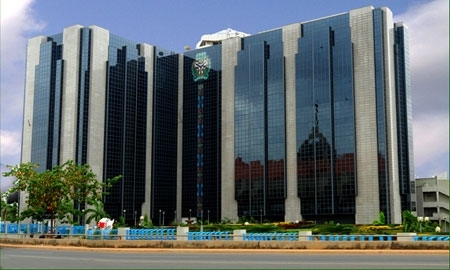Europe, he explains, has been dealing with the problem “incrementally” – doing “a little bit for Spain, a little bit for Portugal, Italy, a little bit for Greece. They are not dealing with the problem in its full size. The Euro zone crisis is lasting longer than it should because it is being dealt with it incrementally.”
The big difference in the way Nigeria handled the crisis is that it looked at the problem “straight in the eye and said: ‘this is how big the problem is, let’s deal with the entire problem.’ So we dealt with the problem at once,” Chike Obi believes.
The Stanford graduate and former employee of Goldman Sachs, Bear Stearns and Guggenheim Partners, among others, certainly knows what he is talking about. He was charged with reviving the ailing Nigeria banks – following the onslaught of the financial crisis in 2008 – by the Governor of the Central Bank of Nigeria (CBN) Lamido Sanusi. Sanusi – who established
AMCON and dismissed the heads of eight banks for mismanagement or malpractice – was named ‘Central Governor of the Year’ in 2010 by The Banker magazine.
When AMCON was set up in 2009 to deal with the tumultuous situation in the banking sector, over 30 per cent of the banks’ loans were non-performing. “The ratio of bad assets within the total banking system in Nigeria was probably higher than anywhere else in the world. I don’t think any other country had to deal with that magnitude,” recalls the AMCON CEO. “It was a big crisis in relative terms and I think that how we resolved it quickly is something everybody should be aware of.”
AMCON had a mandate to buy up the non-performing loans (NPLs) from the banks. So far it has bought around 13,000 NPLs. In 2011 alone, it bought N5.6 trillion (£22.6 billion) worth of bad loans. Now the ratio of NPLs in the country’s banks is at a satisfactory 5 percent and they have begun to turn profits again. The Nigerian financial system, Chike Obi assures, is now in “solid footing”, adding that the banks are “healthy and profitable”. He would advise anybody who wants to come and do banking in Nigeria: “it’s a virgin territory, the retail banking is almost nonexistent and if they can get a part in it they will open up a lot of good assets from banks.
“What remains is to make sure that AMCON is growing professionally. There’s a lot of work to be done in the financial bonds, there’s a lot of work to be done in recoveries, a lot of work to be done in managing some of the large business that AMCON has, there’s work to be done, and it has to be done transparently, professionally and fair to everybody, honest and upright,” he says. In another interview in August, he said that he expects that banks’ bad debts will be fully recovered within five years.
AMCON announced this year that it will be selling off the three failing banks that it nationalised in 2011, Springbank, Afribank, and Bank PHB – and in August told the press that it had already started to divest some of their holdings in the three banks (which were renamed Keystone, Enterprise and Mainstreet following the acquisitions). Chike Obi hopes to have entirely sold off the banks to by as early as the end of 2014 and he assures that there has already been a lot of interest from investors.

0 COMMENTS